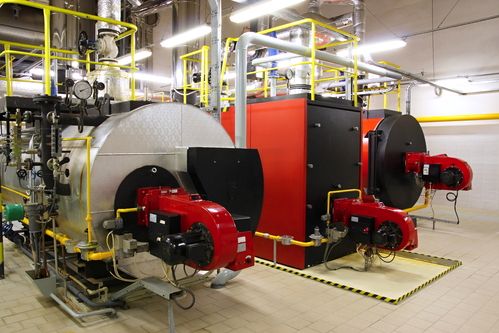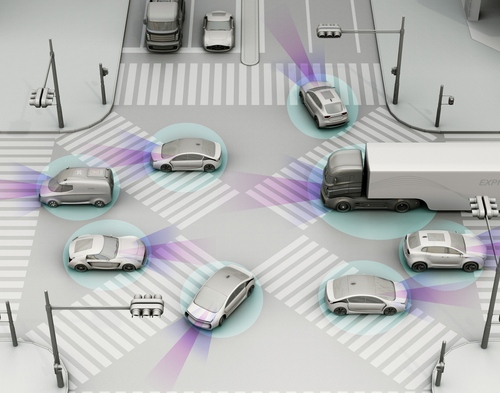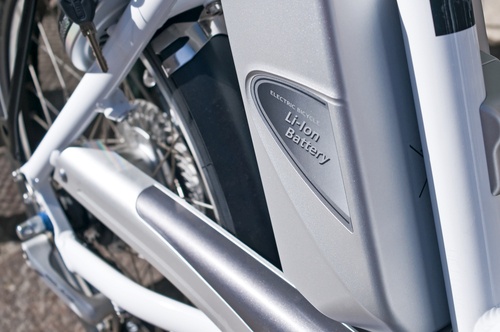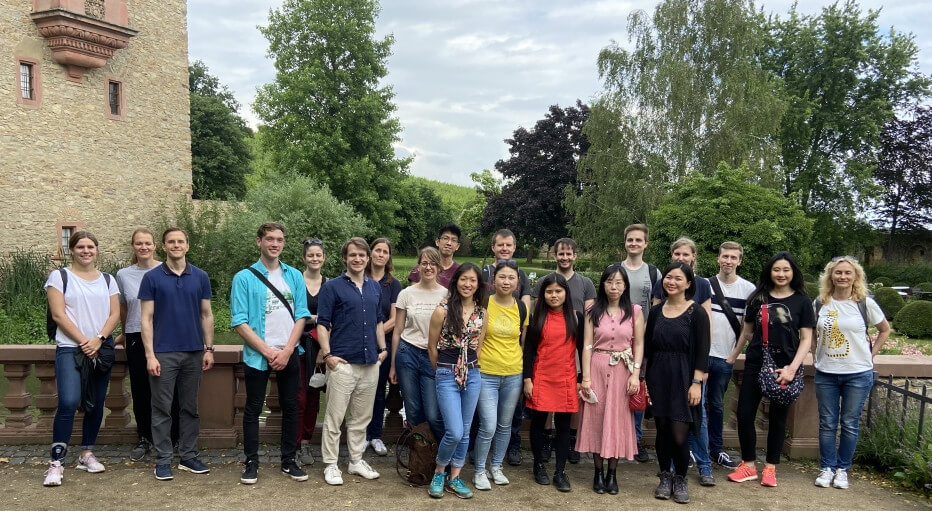China expects rapid growth of smart e-cars from 2023 onwards
A senior executive at Chinese e-car startup Xpeng Motors predicts rapid growth of smart electric cars, especially in cities. When most autonomous driving functions become available from 2023, it will lead to a transformation of the car market. Xpeng Motors Chairman He Xiaopeng predicts that from 2025, around 60 percent of all new cars in major Chinese cities will be electric cars, and half of them will be able to drive autonomously. Vehicles and components must be awarded a CCC certificate in order for products to be exported to China or manufactured locally. The certificate proofs conformity with the Chinese GB Standards.
In the first quarter of 2021, electric cars accounted for 20 percent of all new cars sold in major cities such as Beijing and Shanghai. This represents a doubling of this category compared to the fourth quarter of 2020. Less than half of electric cars still have autonomous driving functions on board. However, company CEO He believes this share will increase rapidly. He estimates that by 2028, about 90 percent of new car sales in major cities will be smart electric cars, and for the rest of the country, he predicts 60 percent.
Xpeng is one of the leading startups in China for electric cars with autonomous driving functions. The company is certain that in the future, electric vehicle manufacturers without assistance systems for autonomous driving will have difficulty competing in the market. Xpeng founder He compares the situation to smartphones and cell phones. Nowadays, the main function of a smartphone is not making phone calls, but other functions. He expects that in 15 years, vehicle usage will also change and customers will spend more time in their cars than at present.
CCC certification, which is needed to import this product category into China, is a complex project that requires professional support at all stages. For several years MPR China Certification GmbH has been entrusted with large CCC projects for the vehicle manufacturers Lotus, Tesla and Bugatti. We will be pleased to provide you with non-binding advice on the scope and requirements of a China CCC certification.
For more information on how CCC certification, the CCC Self-Declaration and voluntary CCAP or CQC certification may affect your company, or for more information about CCC certification in general, the process, and the associated costs, please visit our website and our News Section where you will find current updates twice a week.
Please do not hesitate to contact us for further details and consultation. You can contact us via e-mail, or call us (UK: +44 2071931135, Rest of Europe: +49 69 2713769150, US: +1 773 654-2673).
Please don’t hesitate to also use our chat-window in the bottom right corner if you have any questions. (Please check your browser settings if you can’t see the window)
You can also check out our free CCC-Brochure, which can be downloaded right here as a PDF file or you consult our book (in English) “A Brief Guide to CCC: China Compulsory Certification”, which can be found directly here on Amazon.
Here you can download our brochure about the CCC Self-Declaration.
Here you can download our brochure about the voluntary CCAP or CQC certification.
CNCA implementation rules for E-Bikes updated
On June 23, 2021, CNCA announced changes to China’s implementation rules for product certification of electric bicycles. Electric bicycles and components can fall under the CCC certification requirement and may need to be certified to be approved for use and sale in the Chinese market.
The latest version of the implementation rules for e-bikes in China is the “Compulsory Product Certification Implementation Rules – Electrical Bicycles” (CNCA-C11-16:2021). The most significant change in the new version is that certificates can now be issued in electronic form as PDFs. The CCC certification processes can require many documents; the changes are particularly intended to ease the burden on authorities, as this ensures simplified document handling.
The most important information about CNCA-C11-16:2021 at a glance:
– Introduction of electronic certificates in PDF format
– Updated requirements for product certificates: DIN A4 format is no longer mandatory
– Clearer division of responsibilities between authority, auditors and test laboratories
– More precise information on unit classification
– The validity of already issued certificates remains valid
– Validity of certificates continues to be 5 years
– Test reports will only be accepted from recognized test laboratories
– Regular inspections are required after certification
E-bikes are experiencing increasing popularity in Germany and other countries. Sales have also risen continuously in China since 2010. In general, China is considered the most important sales market for e-bikes worldwide.
For more information on how CCC certification, the CCC Self-Declaration and voluntary CCAP or CQC certification may affect your company, or for more information about CCC certification in general, the process, and the associated costs, please visit our website and our News Section where you will find current updates twice a week.
Please do not hesitate to contact us for further details and consultation. You can contact us via e-mail, or call us (UK: +44 2071931135, Rest of Europe: +49 69 2713769150, US: +1 773 654-2673).
Please don’t hesitate to also use our chat-window in the bottom right corner if you have any questions. (Please check your browser settings if you can’t see the window)
You can also check out our free CCC-Brochure, which can be downloaded right here as a PDF file or you consult our book (in English) “A Brief Guide to CCC: China Compulsory Certification”, which can be found directly here on Amazon.
Here you can download our brochure about the CCC Self-Declaration.
Here you can download our brochure about the voluntary CCAP or CQC certification.
MPR Team Special Company Event
MPR China Certification GmbH is proud to report not a single COVID-19 infection in our team since the beginning of the pandemic thanks to protective measures and home office arrangements. We will continue to monitor and enact the best safety protocols to keep our team members safe.
The MPR China Certification GmbH team took full advantage of the low Germany COVID-19 incidence numbers in July 2021 to celebrate their first joint company event since 2019.
The entire Frankfurt team took the train together to Oestrich-Winkel in the Rheingau region, world-famous for its Riesling wine. Thanks to vaccinations, tests and spending time outdoors, all participants were able to enjoy the trip safely.
After a picnic lunch in the open air on the Rhine, everyone visited Vollrads Castle and the surrounding vineyards together. Vollrads Castle impressed with its long and interesting history and great condition.
The walk through the vineyards was accompanied by a wine specialist who presented interesting facts about the Rheingau and especially about Riesling.
In the evening the MPR team stopped at an excellent restaurant serving regional cuisine. Coordinated with the menu, the winemaker personally provided a nuanced wine accompaniment with detailed information about his local wines.
To conclude our successful outing, the team wrapped up the evening after our return trip to Frankfurt. The outing was a great team building experience and allowed for each of us to personally re-connect again after more than a year of limited contact.
MPR China Certification GmbH would like to thank its customers for their great trust in us during the pandemic.
In addition, we sincerely thank each employee for their excellent work and discipline during this challenging time.
GACC Publishes New Regulations on Food Imports Into China
In April 2021 the GACC (General Administration of Customs of the People’s Republic of China) published two new decrees (Decree No. 248 and Decree No. 249) that fundamentally change food certification for China for imports from foreign countries.
What are the main changes to GACC certification for China?

Decree 248 states that food products will be divided into two categories:
Category 1
Manufacturers or processors of food products must first be inspected by local authorities in the exporting country and recommended to GACC before the food can be registered with GACC in China. At present, it has not yet been precisely determined which local authority will be permanently responsible for these inspections.
Category 2
Here, manufacturers or processors can be registered directly with the GACC without a preliminary inspection. The registration with the GACC is done via an online system, which will be activated shortly.
Category 1 foods include:
- meat and meat products
- casing
- aquatic products
- dairy products
- cubilose and cubilose products
- bee products
- eggs and egg products
- edible fats and oils
- stuffed pasta
- edible cereals
- industrial cereal powder products and malt
- fresh and dehydrated vegetables
- dried beans
- seasonings
- nuts and seeds
- dried fruits
- unroasted coffee beans and cocoa beans
- food for special dietary use
- healthcare products
Decree 249 describes the procedure by which the recommendation by local authorities to the GACC should proceed, specifically the documents required for this purpose. These include:
- a letter of recommendation from the local authority
- a list of recommended producers and their application for registration
- identification documents of the food producer, for example entry in the commercial register
- a statement from the local authorities confirming that the food producer complies with the necessary regulations
- a report on the verification of the food producer by the local authority.
- GACC may request additional documents if necessary for example documents on the food safety management of the manufacturer, including a plan of the work area, the factory and a process flow chart.
In addition, there are foods that must be additionally registered with SAMR (State Administration for Market Regulation). As a government agency, SAMR regulates such areas as market competition, monopolies, intellectual property rights and drug safety.
With these new regulations, China is increasing the focus on food safety controls of food producers and also on Chinese importers in an effort to show that the foods meet the Chinese requirements.
More information on food certification in China in general can be found here.
Please feel free to contact us for more information and advice on how to import your products into China. You can email us or call us at +49692713769150.
For direct questions, you are also welcome to use our chat window in the lower right corner. (Check your browser settings if you can’t see the chat window).
CSEI research department conducts tests at high altitude for hot water boilers
The Energy Conservation Technology Research Department of China’s CSEI Institute conducted tests of hot water boilers at the high altitude of the Tibetan Plateau in Qinghai Province on behalf of the market regulator SAMR. The CSEI (China Special Equipment Inspection and Research Institute) collaborated on this with numerous research institutions in Qinghai Province, which had previously set up a research laboratory there. This facility made it possible to conduct tests on the energy efficiency and emissions output of hot water boilers. Such tests are essential for a SELO license, also known as China Manufacture License, which is mandatory for pressure vessels in China. The license is issued by the Chinese authority SELO – China Special Equipment Licensing Office. Like the CSEI, this authority is subordinate to the state market regulator SAMR.

Boilers with different energy sources were studied and the series of tests was completed at the end of March. The energy sources were 20 boilers heated with coal, 67 were operated with gas and 2 with electricity. The parameters studied included flue gas temperatures, concentration of carbon monoxide in the flue gas, and the energy or amount of fuel required. Deficiencies in burner design and supply air were revealed, and maintenance problems were encountered. The test engineers present attempted to correct the problems by making adjustments to the boilers and subsequent measurements. In addition, operators and their personnel were trained on how to operate the boilers efficiently and in an environmentally friendly manner. In the end, both the amount of fuel required and nitrogen oxide emissions were reduced. According to the CSEI, both the operators and the local population benefited from the tests and improvements made. Local authorities and operating companies thanked the CSEI for their efforts and said that other provinces located at high altitude could also benefit from the results.
A so-called SELO license is required in China to import and manufacture equipment and machinery that operates at high pressure, like hot water boilers. The license is issued by the Chinese authority that gives it its name, SELO – China Special Equipment Licensing Office. Like the CSEI, this authority is subordinate to the state market regulator SAMR. Other names for the SELO license are Chinese Manufacture License (CML) and China Pressure Vessel License. The regulation came into effect in 2014, and foreign and domestic manufacturers need the SELO license to sell their products in China. Are you interested in SELO licensing for the Chinese market? MPR China Certification GmbH can offer you to carry out SELO licensing.
Please do not hesitate to contact us for further details and consultation. You can contact us via e-mail, or call us (UK: +44 2071931135, Rest of Europe: +49 69 2713769150, US: +1 773 654-2673).
Please also use our chat-window in the bottom right corner if you have any questions. (Please check your browser settings if you can’t see the window)






